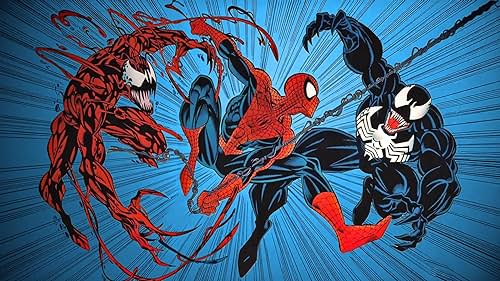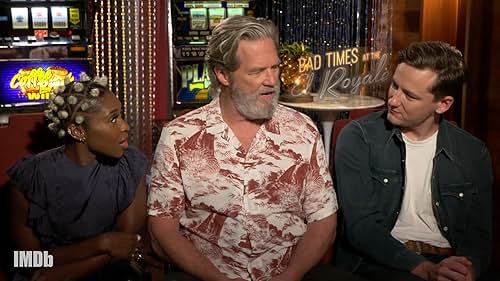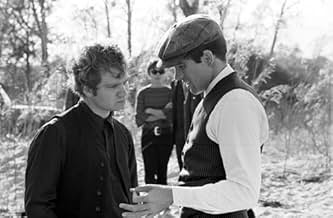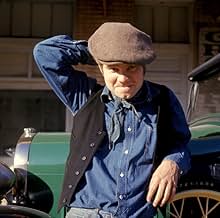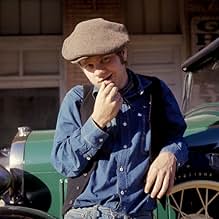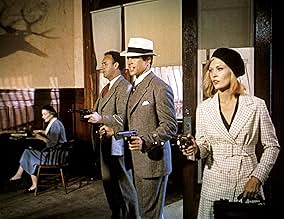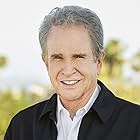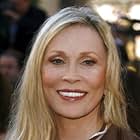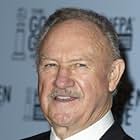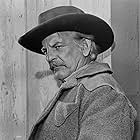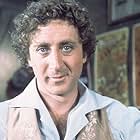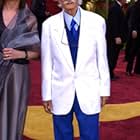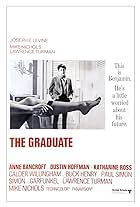Bored waitress Bonnie Parker falls in love with an ex-con named Clyde Barrow and together they start a violent crime spree through the country, stealing cars and robbing banks.Bored waitress Bonnie Parker falls in love with an ex-con named Clyde Barrow and together they start a violent crime spree through the country, stealing cars and robbing banks.Bored waitress Bonnie Parker falls in love with an ex-con named Clyde Barrow and together they start a violent crime spree through the country, stealing cars and robbing banks.
- Won 2 Oscars
- 22 wins & 29 nominations total
Martha Adcock
- Bank Customer
- (uncredited)
Harry Appling
- Bonnie's Uncle
- (uncredited)
Garrett Cassell
- Cop
- (uncredited)
Mabel Cavitt
- Bonnie's Mother
- (uncredited)
Patrick Cranshaw
- Bank Teller
- (uncredited)
Frances Fisher
- Bonnie's Aunt
- (uncredited)
Sadie French
- Bank Customer
- (uncredited)
Garry Goodgion
- Billy
- (uncredited)
- Director
- Writers
- All cast & crew
- Production, box office & more at IMDbPro
Storyline
Did you know
- TriviaWhen Warren Beatty was on-board as producer only, his sister Shirley MacLaine was a strong possibility to play Bonnie. But when Beatty decided to play Clyde himself, for obvious reasons he decided not to use MacLaine.
- GoofsThe film portrays Texas Ranger Frank Hamer as a vengeful bungler who had been captured, humiliated, and released by Bonnie and Clyde. In reality, Hamer was already a legendary Texas Ranger when he was coaxed out of semi-retirement to hunt down the duo. He never met either of them until he and his posse successfully ambushed and killed them near Gibsland, Louisiana, in 1934. In 1968, Hamer's widow and son sued the movie producers for defamation of character over his portrayal and were awarded an out-of-court settlement in 1971.
- Quotes
Clyde Barrow: This here's Miss Bonnie Parker. I'm Clyde Barrow. We rob banks.
- Alternate versionsSeveral scenes (most of which can be read in the film's script) were shot but removed or altered for various reasons, either for content or to keep the running time under two hours. These scenes are, in chronological order:
- The earliest versions had Clyde shooting and killing the butcher during their fight. This was toned down to Clyde just shooting the butcher, and finally just pistol whipping him. In real life, speculation still exists as to whether Clyde Barrow actually committed the crime this is based on; although his photo was picked out, the method in which it was executed doesn't fit his MO. In the final cut, there is a brief jump in the film during the fight, where it was spliced from the original, more graphic conclusion.
- After picking up C.W., Clyde and Bonnie take him to a diner where they plan their next robbery.
- After Clyde kills Doyle Johnson (the man on the running board), Bonnie talks with CW in the bathroom while Clyde cleans his guns and laments his actions. In the bathroom CW bathes and Bonnie attempts to seduce him, but changes her mind when CW proves to be less than romantic material. A still from this scene-- Bonnie wearing a slip and Clyde's hat-- can be seen on the DVD.
- A longer scene of Buck and Blanche's approach to the motor lodge. Buck is singing Bible hymns and Blanche scolds him for bringing her to see Clyde.
- A longer version of Bonnie's visit home; she sits in the car and her sister gives her a perm (a portion of this-- Bonnie on the running board getting her hair put up-- exists in the final film).
- A very long sequence in which Bonnie and Clyde get drunk and come to terms with their impending death. They trash their room and rip out the mattress from their bed, turning it into a makeshift coffin. They then put on their best clothes and put makeup on each other so they can see what they will look like when they're dead. The scene concludes with Bonnie and Clyde dancing around CW by candlelight and chanting "The Hearse Song."
- During the Platte City raid, C.W. uses a machine gun to attack the armored car instead of grenades.
- The final shootout, in its earliest form, was done entirely with still photos shown over sounds of machine gun fire and screams, and we never actually saw Bonnie or Clyde dead. The movie ended with the two farmers running towards the car while "Foggy Mountain Breakdown" Played in the background.
- ConnectionsFeatured in The 40th Annual Academy Awards (1968)
- SoundtracksDeep Night
Music by Charles Henderson
Lyrics by Rudy Vallee
Performed by Rudy Vallee
(heard over the opening credits)
Featured review
I wasn't surprise to find out that Francois Truffaut and Jean Luc Godard had been seriously considered to helm the tragic tale of Clyde Barrow and Bonnie Parker. Fortunately Arthur Penn took over. I say fortunately, not because I think any less of Truffaut or Godard but I'm sure nobody could have made this glorious American classic but Arthur Penn. Somehow there is an air of Frenchness permeating every frame even if Bonnie and Clyde is profoundly American. For a foreigner, like me, America has always been a Country to admire even if puzzling. Guns and Bibles. Violence with a poetic aura that it's as startling as it is disturbing. Warren Beatty is superb as Clyde - the real life character was homosexual but for the film he is impotent - more acceptable? Amazing to think of it now. Faye Dunaway became an icon, deservedly so. Gene Hackman, the extraordinary Estelle Parsons, Michael J Pollard and even Gene Wilder complete the cast of this extraordinary American film.
- ggallegosgroupuk
- Apr 13, 2017
- Permalink
Details
- Release date
- Country of origin
- Official site
- Language
- Also known as
- Bonnie und Clyde
- Filming locations
- Red Oak, Texas, USA(Bank Robbery)
- Production companies
- See more company credits at IMDbPro
Box office
- Budget
- $2,500,000 (estimated)
- Gross worldwide
- $1,475
- Runtime1 hour 51 minutes
- Sound mix
- Aspect ratio
- 1.85 : 1
Contribute to this page
Suggest an edit or add missing content



